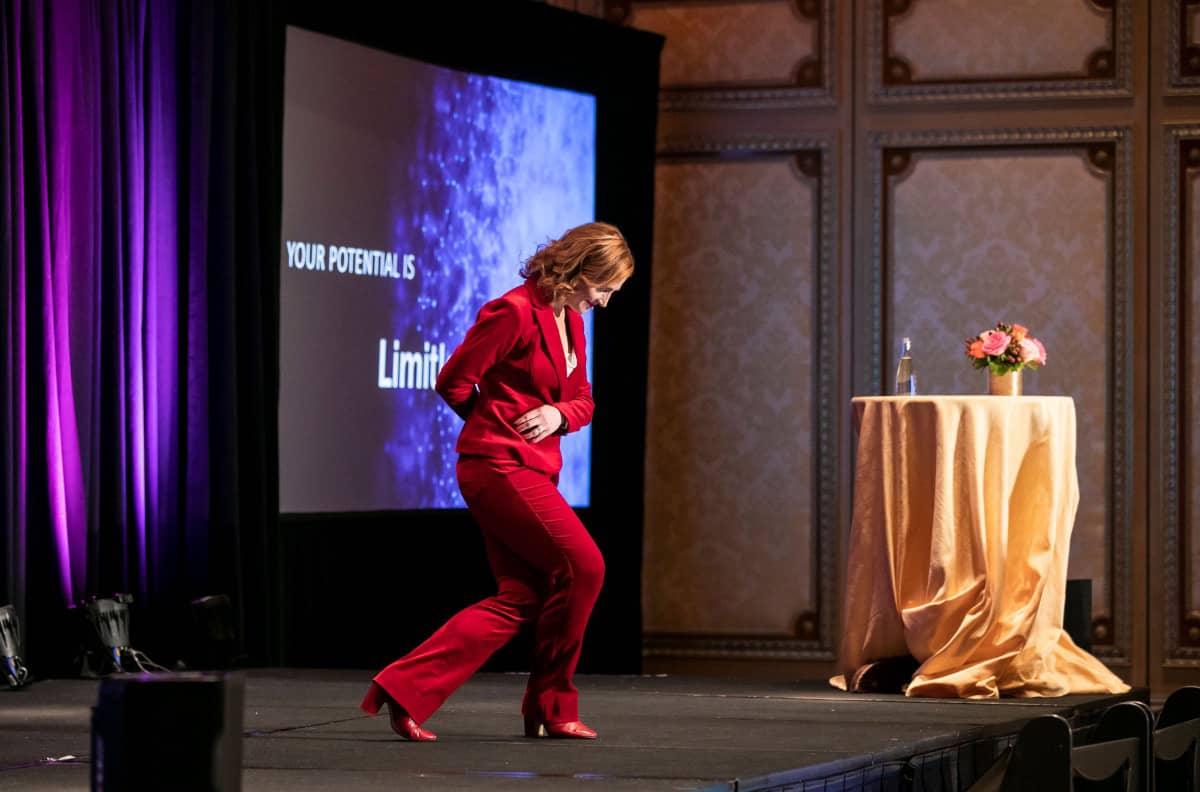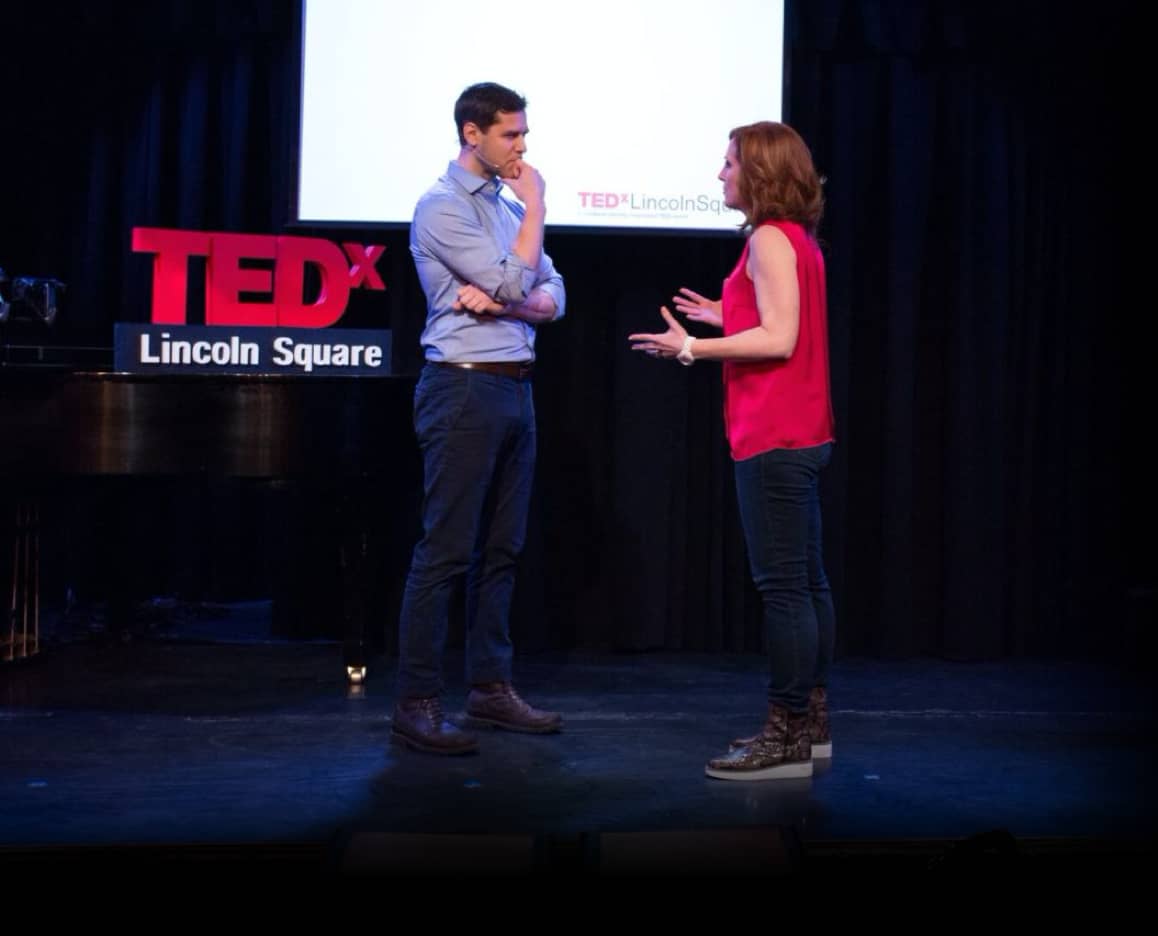Moving from being a good speaker to being a great speaker is possible when you know what to do. So many speakers stay in the “good” category because they aren’t aware of little adjustments that can have a big impact in how you show up onstage.
Check out these six public speaking tips below!
Earn the Audience’s Time & Attention
Make eye contact. Smile. Captivate from having confidence which comes from relentless rehearsing. Let your ideas flow through you. By focusing on earing the gift of the audience’s time and attention, they will want to earn yours.
Make Sure You’re Credible
Always find an idea you’re passionate about, but also make sure you’re credible. If you want to take a big stage, mostly you have to understand your idea, be passionate about it, and be credible about it. For example, you may be passionate about the Food Network, but that does not make you a chef. If you have an idea that you love talking about, it’s important that you’re credible. Caring enough is not enough. You need to be able to establish your authority as the person we should listen to. Maybe that’s education, research or your unique experience. Whatever it is, be credible! Otherwise, why should we give you our attention?
Ask Yourself 3 Key Questions
Before you choose a topic to speak about, always ask yourself three key questions: Why it matters, why it matters to you, and why it matters to the world. If your topic only matters to you, we won’t be able to relate to it. For example, Tedx Lincoln Square speaker Sarah Montana applied with her story of forgiveness. We were concerned that this would be an idea that would be difficult for the audience to pallet. She talked about forgiveness in terms of her mother and brother being murdered on Christmas Eve. I allowed her to submit a video in order to see what was possible for this incredible idea and speaker – and it was incredible. Her talk connected the dots between her unique experience and a broader global experience that we all share – and that is how we can all transform our lives through forgiveness. Your audience needs to see themselves in your talk, otherwise your words will just be information without impact.
Rehearse the Experience You Will Have
The worst thing you can do is rehearse alone and in front of a mirror. You will think you have your presentation down and that you’re amazing, but the moment you get in front of the audience, your body will betray you. Your palms will get sweaty, the butterflies will start to visit, and you’ll start thinking about everything and anything except your talk. You will probably forget what you planned to say. Start by exposing yourself to mild stress during rehearsals. Mild meaning a family member, someone you love and trust who is not going to criticize, judge or give feedback. Then increase that stress a little more – give your talk to a colleague or some friends. Then increase the stress even more by rehearsing in front of a large group. You cannot rehearse too often or for too many people because the more you rehearse, the more things are going to go wrong, and you’ll learn how to handle it – you’ll be prepared when you’re onstage to deal with anything that might possibly go wrong. As a result, the less nervous you’ll be because you will have adapted to the stress of speaking in front of people.
Always Craft Your Speech as a Conversation
If your talk sounds like a script or a book, your audience can just read it. Your presentation needs to sound like a conversion – one with your point of view and your style. Infuse your personality and voice into the talk. If you’re funny, use humor. If you’re not funny, don’t try to be then. If you speak in slang, that’s how your talk should sound. Commit to being you and trust that it’s right. Do not speak like a speak – speak like you.
Harness the Power of Movement
Words matter, but so does body language and movement. Video yourself or rehearse in front of people that are going to be honest about what you’re doing and not doing. If you flap your arms, you need to know that so you can break that habit.
Hopefully these public speaking tips help you move from being a good public speaker to become a great one!
Learn More About Tricia Brouk!

Tricia Brouk is an award-winning director, writer, producer and public speaking coach. As an expert in the art of public speaking, she puts speakers on TEDx and other big stages. She also hosts The Big Talk, an award-winning public speaking podcast on iTunes.
Tricia can give help you become the confident, inspirational speaker you are meant to be. If you’re looking for a speaker coach who can get you to the next level, reach out to Tricia Brouk today! In the meantime, check out her YouTube page for more public speaking tips and tricks.








